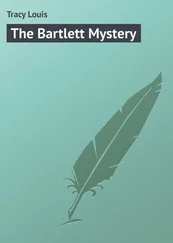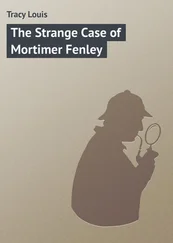Louis Tracy - The Message
Здесь есть возможность читать онлайн «Louis Tracy - The Message» — ознакомительный отрывок электронной книги совершенно бесплатно, а после прочтения отрывка купить полную версию. В некоторых случаях можно слушать аудио, скачать через торрент в формате fb2 и присутствует краткое содержание. Жанр: foreign_prose, на английском языке. Описание произведения, (предисловие) а так же отзывы посетителей доступны на портале библиотеки ЛибКат.
- Название:The Message
- Автор:
- Жанр:
- Год:неизвестен
- ISBN:нет данных
- Рейтинг книги:3 / 5. Голосов: 1
-
Избранное:Добавить в избранное
- Отзывы:
-
Ваша оценка:
- 60
- 1
- 2
- 3
- 4
- 5
The Message: краткое содержание, описание и аннотация
Предлагаем к чтению аннотацию, описание, краткое содержание или предисловие (зависит от того, что написал сам автор книги «The Message»). Если вы не нашли необходимую информацию о книге — напишите в комментариях, мы постараемся отыскать её.
The Message — читать онлайн ознакомительный отрывок
Ниже представлен текст книги, разбитый по страницам. Система сохранения места последней прочитанной страницы, позволяет с удобством читать онлайн бесплатно книгу «The Message», без необходимости каждый раз заново искать на чём Вы остановились. Поставьте закладку, и сможете в любой момент перейти на страницу, на которой закончили чтение.
Интервал:
Закладка:
For its special purpose – the summoning of a boy selling newspapers – it was a sure means toward an end. It drew the boy’s attention, even evoked his envy. But it chanced also to be a krooboy call on the Upper Niger, and in that capacity it brought a lean, swarthy face to the window of a bedroom in a quiet hotel overlooking the quay.
Señor Miguel Figuero looked annoyed at first. His dark, prominent eyes searched the open space for one of the negroes whom he expected to find there, but his wrathful expression changed to blank incredulity when he saw Warden. The phase of sheer unbelief did not last long. He darted out of the room, and rapped sharply on a neighboring door.
“O Loanda, M’Wanga! you fit for get up one–time,” he shouted.
Crossing the corridor, he roused another dusky gentleman, Pana by name, with the same imperative command. Soon the four were gathered at a window and gazing at Warden.
“Dep’ty Commissioner Brass River lib,” whispered the Portuguese eagerly. “You savvy – him dat was in Oku bush las’ year. Him captain Hausa men. You lib for see him.”
“O Figuero,” said one of the negroes, seemingly their leader, “I plenty much savvy. I see him palaver in village.”
“S’pose we fit for catch ‘im?” suggested another.
“That fool talk here,” growled Figuero. “You lib for see him to–day – then we catch him bush one–time. I hear him give boat–boy whistle. Stick your eyes on him, you pagans, an’ don’t you lib for forget – savvy?”
They grunted agreement. The West African bushman has to depend almost exclusively on his five senses for continued existence, and there was little doubt that Arthur Warden would be recognized by each man at any future date within reason, no matter what uniform he wore, or how greatly his features might be altered by hardship or fever.
“Why he lib for dis place?” asked Loanda, the chief, who remembered Warden’s part in the suppression of a slave–raid and the punishment subsequently inflicted on those who aided and abetted it.
“No savvy – yet. I lib for watch – then I savvy,” said the Portuguese.
“O Figuero, I fit for chop,” murmured Pana, who found little amusement in gazing idly at an Englishman through a window when there were good things to eat in the hotel.
“All right. Go an’ chop, but remain in room till I come. Then I dash you one quart gin.”
Pana grinned.
“I chop one–time,” he said, and, indeed, the three looked as though they could tackle a roasted sheep comfortably.
Meanwhile, Warden opened his paper and took more interest than usual in the news. He learned that the emperor dined on board the imperial yacht and subsequently visited the Castle, being accompanied by Count von Rippenbach as aide–de–camp .
Warden did not pretend to have more than a passing knowledge of foreign politics, but he noted the name, the Count having undoubtedly been a party to the conference on the Sans Souci .
Another paragraph was of more immediate import, inasmuch as it tended to solve the mystery of the calabash. It ran:
“The emperor’s yacht, after watching the British fleet at gun practice off Selsey Bill yesterday, returned to the island and followed the racers during several hours. An alarming incident occurred when rounding the Foreland. Though a course was laid close in–shore, both charts and lead showed ten fathoms of water. Suddenly the cruiser struck. At first it was believed that she had run into some unknown sandbank formed by a recent gale, but examination revealed that she had collided with a sunken wreck, invisible even at low–water spring tide. No damage whatever was done to the stately vessel, which continued the cruise after a delay of a few minutes.
“A Sandown gentleman, passing the same spot later in his launch, found some floating wreckage. The pieces he brought ashore are believed to be parts of a ship dating back at least a couple of centuries, as there is no record within modern times of any wooden ship foundering in the locality. The gentleman in question decided to mark the exact spot with a buoy, and a diver’s services will be requisitioned when tide and weather are suitable, so there is some possibility that a number of antiques, together with a quantity of very old timber, will be recovered.”
Warden read the item twice. He found that the emperor was not on board his own yacht at the time. The remainder of the newspaper was dull. He threw away all but the page referring to Cowes, which he stuffed in a pocket, and, although he held his nerves under good control, he almost swore aloud when his fingers touched the roll of skin, whose very existence he had forgotten for the hour.
The minutes passed slowly until a gig from the Sans Souci deposited Miss Dane on the wharf.
Not wishing to become known to any of the yacht’s people if he could possibly avoid it, Warden strolled away a little distance as soon as the boat appeared in the Medina. Figuero, whose eyes had never left him for an instant since he emitted the telltale whistle, hurried to the door of the hotel and narrowly escaped being discovered when Warden turned on his heel.
The Portuguese, an expert tracker in the bush, was out of his element in Cowes, but he managed to slip out of sight in good time. He was safer than he imagined. Warden was looking at Evelyn Dane, and she made a pretty enough picture on this fine summer’s day to keep any man’s glance from wandering.
It gave him a subtle sense of joy to note the unfeigned pleasure of her greeting. Her face mantled with a slight color as she held out her hand.
“I am on my way home,” she cried, “but my train does not leave for half an hour. It is so good of you to wait here. I was dreading that you might row across to the yacht – not because I did not want to see you again, but Mr. Baumgartner made such a point of excluding me from any knowledge of his visitors last night that he would be positively ill if he guessed I had friends on board the Nancy .”
“And Mrs. Baumgartner – ”
“She is a dear creature, but much in awe where her husband’s business affairs are concerned. She and I passed the evening together. She would not hear of my departure, but she warned me not to say a word about my afternoon’s adventures. Mr. Baumgartner is of a nervous disposition. I suppose he thinks all the world is watching him because he is a rich man.”
“There is method in his madness this time,” laughed Warden. “Let me tell you quite candidly that if some one told him my name and occupation and added the information that I kept a close eye on the Sans Souci between the hours of 5.30 and 9 p. m. last night, he, being of plethoric habit, would be in danger of apoplexy.”
They were walking to the station. Evelyn, unable to decide whether or not to take his words seriously, gave him a shy look.
“You knew I was safe on board,” she said.
For some reason, the assumption that he was thinking only of her caused the blood to tingle in Warden’s veins.
“That is the nicest thing you could have said,” he agreed, and she in turn felt her heart racing.
“Of course you are very well aware that I did not imagine you might not be differently occupied,” she protested.
“Let us not quarrel about meanings. You were delightfully right. It is the simple fact that before you were many minutes in the Sans Souci’s cabin – by the way, where were you?”
“In Mrs. Baumgartner’s state–room.”
“Ah. Well – to continue – I was nearly coming to take you away, vi et armis .”
“But why?”
“You have no idea whom Mr. Baumgartner was entertaining?”
“None.”
“The first person to reach the Sans Souci after yourself was the Portuguese land–pirate I mentioned to you yesterday. He was accompanied by three chiefs of the men of Oku. Do you recollect my description of the mask on the gourd?”
Читать дальшеИнтервал:
Закладка:
Похожие книги на «The Message»
Представляем Вашему вниманию похожие книги на «The Message» списком для выбора. Мы отобрали схожую по названию и смыслу литературу в надежде предоставить читателям больше вариантов отыскать новые, интересные, ещё непрочитанные произведения.
Обсуждение, отзывы о книге «The Message» и просто собственные мнения читателей. Оставьте ваши комментарии, напишите, что Вы думаете о произведении, его смысле или главных героях. Укажите что конкретно понравилось, а что нет, и почему Вы так считаете.












